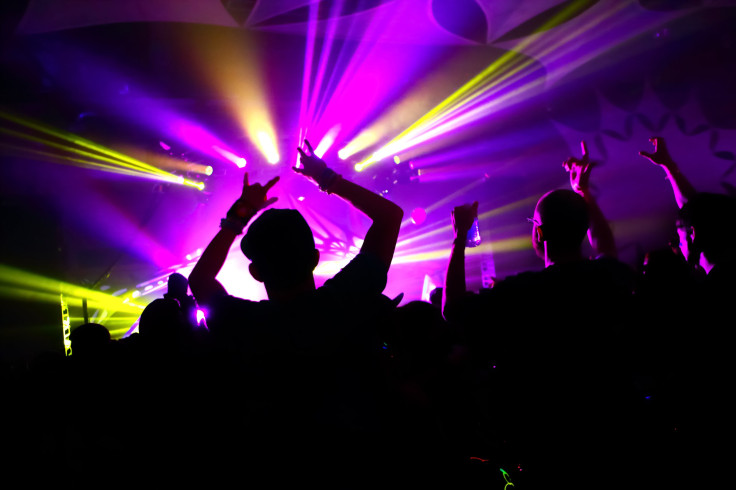Are 'Glow Parties' The Newest Scare For Parents Of Teens, Or Just A New Name For An Old Institution?

“Glow parties” have been getting a lot of attention recently, although for none of the right reasons. The alcohol-free parties are dubbed "the newest thing to scare parents." One New Jersey-based “glow party” has been postponed after recently being under police investigation for suspicion of under-age drug use. New Jersey police have informed parents in the community of the drug use that may go on at these parties. Those skeptical of the police investigation feel that education for teens and their parents, rather than canceling the musical light show, is the best way to protect teenagers from illegal drugs.
“Glow parties” are promoted as alcohol-free events opens to teens as young as 16. They consist of loud, pulsing music, glow sticks, and strobe lights. Basically, it’s the newest generation’s reinvention of a rave. A popular “hyperglow party,” which was planned for last Friday in Sayreville, N.J., has been canceled. The event's management cited “scheduling conflicts” for the postponement; however, Middlesex County Prosecutor Andrew Carey claims that the party was stopped due to pressure applied by his investigators. He believes that the glow sticks are being used to heighten the drug-induced euphoria. “Glow or Hyperglow, is how it’s billed, because the kids that use the pills — they use the fluorescent glow-type sticks that enhance the effects of the drug,” Carey explained to Gawker.
The drug that police are referring to is Molly. According the Drug Enforcement Administration, Molly is a powder or crystal form of MDMA, or 3,4-Methylenedioxymethamphetamine, the chemical most commonly known for its use in Ecstasy pills. Molly, which is short for "molecule," is populary referred to as “pure” MDMA. This is because unlike Ecstasy, Molly is not usually mixed with other drugs and substances. The DEA labels Molly a Schedule 1 controlled substance and considers it to have a high potential for abuse; it's not approved for medical use in the U.S.
The drug has recently been glamorized by musicians and tends to have younger users between the ages of 16 and 24, according to CNN. “A lot has to do with the doses people take. As you increase the dose over an extended period of time, you can expect to see some negative effects. That’s a general rule the public really needs to understand,” Carl Hart, a Columbia University associate professor of psychology, explained to CNN. Molly can lower inhibitions, cause a feeling of euphoria, and make the user feel that everyone around them is a close friend.
Negative side effects associated with this popular club-drug are accelerated heart rate and raised blood pressure. The drug can disorientate a user’s mind so that they do not realize that they body temperature is rising. Further complications include dehydration, hyperthermia, seizures, electrolyte abnormalities, cardiac episodes, and comas. The drug also depletes the body’s neurotransmitters, and long term-use can lead to depression. “What we’ve done and we consistently do is we include people that exaggerate the harms. Kids are not listening because they’ve already had the experience … They (think they) should reject everything we’re saying because we’re not being accurate, and they know it,” Hart further explained to CNN.
Although the dangers of Molly cannot be disputed, some believe that canceling the popular music and lights show is not the right way to protect teens from the drug. “I think people are overreacting. I don’t see the harm in it. It’s just like anything — you never know. Some people might find themselves in trouble,” Justin Nowicki of Sayreville told CBS New York. As of now, the hyperglow party in New Jersey continues to be postponed. Those who have purchased the $40 tickets and cannot attend the new date will be offered full refunds.



























